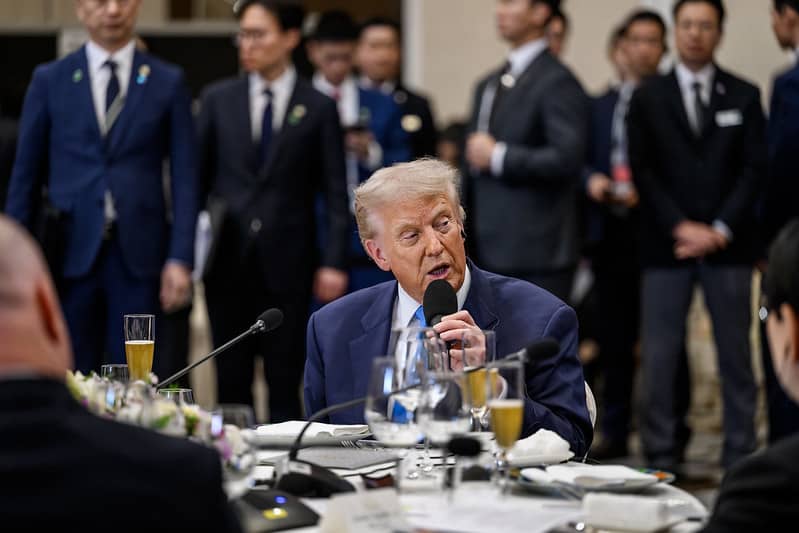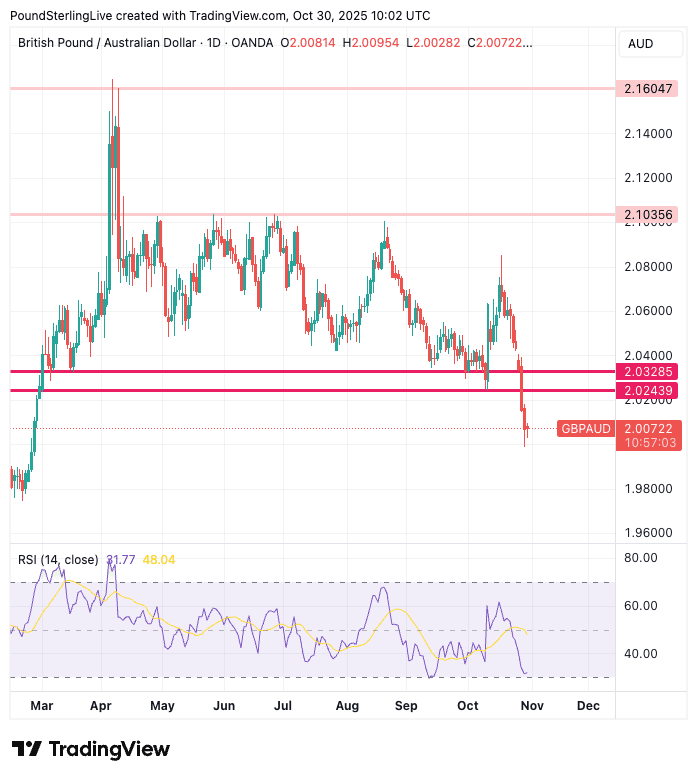
President Donald Trump completed his Asian tour with news of progress on trade with China. Official White House Photo by Molly Riley.
The Australian dollar is boosted by confirmation of a China-U.S. trade agreement.
U.S. President Donald Trump rated his meeting with China's Xi Jinping a 12 out of 10, telling reporters, "the whole relationship is very, very important,” he said.
Trump said the U.S. would cut a 20% tariff imposed on China due to fentanyl shipments to 10%, because Beijing said it would work to cut supplies.
China would resume soybean purchases and suspend the rare earth licensing regime for a year.
That rare earths deal is important as it pertained to all countries, not just the U.S. The global spin on the restrictions triggered an Australian dollar selloff earlier in October, meaning its lifting will boost the Aussie currency.
A full U.S.-China trade deal could follow, he added.
"I think pretty soon," he said. "We have not too many major stumbling blocks."
The news bolsters investor sentiment, helping a swathe of global stock markets to new record highs. Currencies that enjoy these kinds of conditions are also beneting.
Chief amongst them is the Australian Dollar: GBP/AUD is under the hammer having broken through significant support at 2.0330-2.024 and is racing to 2.0.
The RSI is kissing oversold now, so some relief is due, but the downside is still preferred here as AUD stands to benefit from the U.S.-China trade detente.
AUD/USD rose to 0.66 on Wednesday but was unable to hold that line, owing to the broader U.S. dollar advance that followed the Federal Reserve's policy decision.
That being said, the Australian dollar is withstanding U.S. dollar strength better than most, testament to the antipodean currency's current spell of outperformance.
EUR/AUD is also under pressure at 1.7685 and we are on the lookout for a breakdown in support at 1.76 in the coming sessions.
"The outcomes from today's trade talks are better than expectations, particularly around the reduction in the fentanyl-related tariffs and the roll-back of the export restrictions on the 50%-owned subsidiaries," says James Wang, strategist at UBS. "We see room for further optimism should state visits by the leaders occur in the next few quarters."

